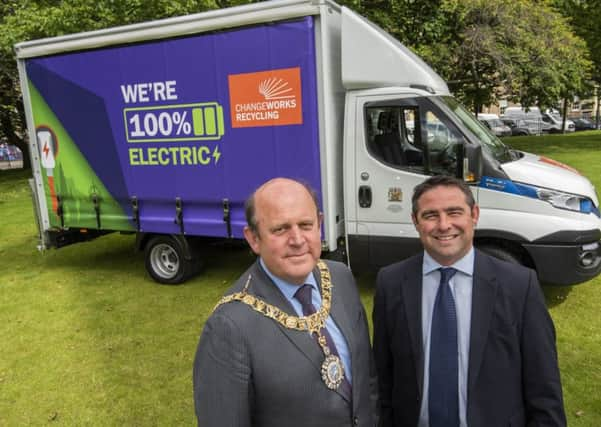Comment: What Edinburgh firms need to know ahead of new waste regulations


Following the change in rules regarding the storage of general waste and recycling bins in 2015, the City of Edinburgh Council is now revoking permits for businesses to store their food and glass waste on public property – for example, outside their shop or restaurant – as of 30 September 2019.
The impact on businesses
While there is no doubt this change will have a positive environmental impact on the business community and street cleanliness, making Edinburgh a better place to work, visit and live in, this initiative presents major challenges for some of Edinburgh’s larger businesses.
Advertisement
Hide AdAdvertisement
Hide AdSuch businesses, which will face fines if they do not comply with the new regulations, produce large amounts of glass and food waste but have limited space to store it in, with those in the hospitality sector likely to be the most affected.
So, what exactly can Edinburgh’s businesses do to prepare?
Do your research
Find a waste management partner that understands your business and can accommodate your schedule and waste management needs. Collections may need to be more frequent to ensure nothing has to be left outside your premises, so partnership and problem solving are going to be key factors in making your collections work.
For example, when the ruling was issued in Glasgow in 2018, Rab Ha’s, a bar in central Glasgow, had no internal space to store a container for trade waste and had been disposing of it outside the bar. However, by conducting some research and working with the right waste management provider that understood their needs, they were able to identify areas within the bar where recycling points could be set up and successfully managed to cooperate with the new rules.
Move to internal collections
Internal collections, which as the name suggests means waste and recycling is collected from within your premises, means that your business doesn’t have to worry about your waste ever being stored outside and therefore avoid the possibility of any fines.
It is much more convenient and, with a more efficient use of space, most businesses can take advantage of internal collections. It might mean thinking about using smaller bins and caddies to hold the waste prior to collection and implementing more regular collections to ensure your waste isn’t building up, but the right waste management partner will be able to advise you on this.
Amber Regent, a Glasgow city centre restaurant, made the switch to using internal collections following the introduction of new waste regulations in the city. All glass, food and general waste bins and bags are now uplifted daily from within the restaurant’s bin store. This system is far easier to manage and has allowed the business to increase its recycling rate to more than 90 per cent – an incredible result.
Design a bespoke collection service
Businesses should be aware of the restrictions and the complexities involved with a ruling such as this one. Services need to be designed by waste management companies which meet the needs of the customer while complying with the new regulations.
Bloc+, an independent live music bar and venue also based in Glasgow, previously had eight large bins on the street outside its premises. However, since moving to smaller bins which could be stored within their premises and opting for internal collections, they have managed to make use of the limited internal space available to them.
Advertisement
Hide AdAdvertisement
Hide AdThis is a great example of working with what you have to produce great results. The venue has also been able to increase its recycling rate to 87 per cent, thereby significantly reducing their general waste costs, while benefitting the environment.
Corporate social responsibility is essential to business success nowadays – people want to work for, and with, environmentally and socially conscious businesses. The majority of people already have an awareness of the environmental challenges that we are facing, but now is the time for businesses to put that awareness into action by better understanding what happens to their waste and how to recycle more effectively. This change in regulation will help Edinburgh’s businesses do just that.
As a result of this update, businesses will better understand how their waste is produced, what exactly they are producing, and how to take ownership of their recycling initiatives in order to reduce waste. On top of this, it offers Edinburgh’s businesses the chance to do some serious cost-saving while improving efficiency across the board.